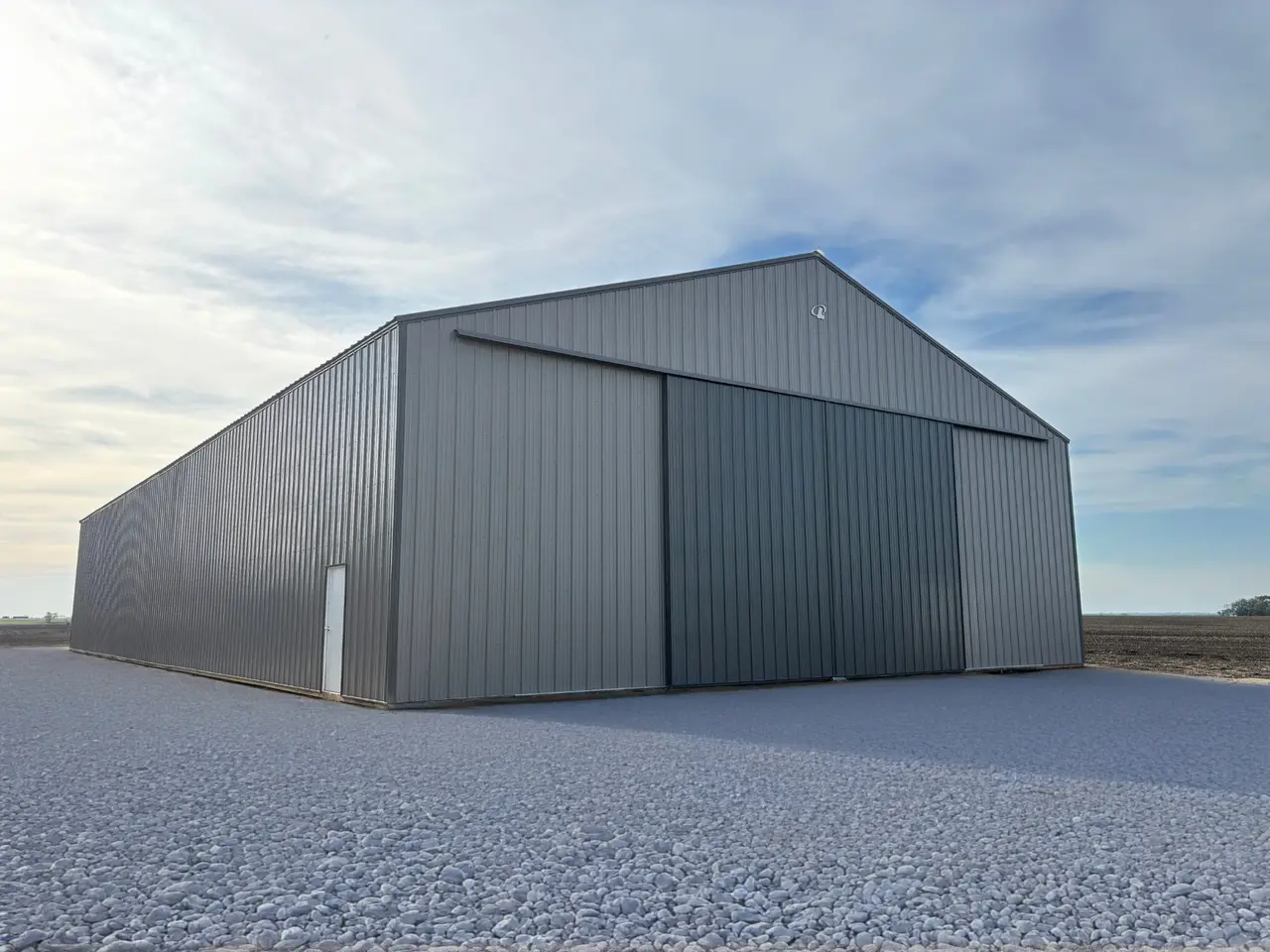If you’re planning to build a metal garage, shop, or utility structure in Kansas, one of the first questions you’ll likely ask is:
“How much does it cost to build a metal building?”
It’s a smart place to start—and while the total cost depends on several factors, there are consistent price ranges that apply throughout east-central Kansas, especially in areas like Council Grove, Manhattan, Emporia, and Junction City.
This guide breaks down what it typically costs to build a 30x40x12 metal building, what’s included, and how local Kansas conditions affect your budget.
What Is a Metal Building?
In Kansas, a “metal building” usually refers to a post-frame structure with wood or steel framing, a concrete slab foundation, and metal siding and roofing. These buildings are commonly used for:
- Garages
- Farm equipment storage
- Workshops
- RV or trailer shelters
- General-purpose ag and residential outbuildings
They’re a popular choice in the Flint Hills and surrounding counties thanks to their durability, relatively quick construction timeline, and adaptability to Kansas weather and terrain.
What Does a 30x40x12 Metal Building Cost?
A 30-foot wide, 40-foot long, 12-foot tall building has 1,200 square feet of floor space. This is a common size for a two-car garage with workspace or a mid-sized shop.
In Kansas, current pricing generally falls into two categories:
- A non-insulated metal building costs (35 to )40 per square foot, totaling between (42,000 and )48,000.
- An insulated metal building costs (40 to )45 per square foot, totaling between (48,000 and )54,000.
These figures reflect a full, code-compliant shell that includes:
- Framing (wood posts and trusses)
- Metal roof and wall panels with trim
- A 4-inch concrete slab foundation
- One overhead door and one walk-through door
- Fasteners, accessories, and install hardware
- Labor for construction
- Basic permitting and code drawings, where required
Interior finishes (like drywall, plumbing, HVAC, or electric) are not included in this range. Site-specific needs like grading, trenching, or rural utility work may increase the final cost.
What Affects the Final Price?
While the building size gives you a strong starting point, these key Kansas-specific factors influence how far your budget goes:
Soil and Drainage
Areas like Council Grove, Wilsey, and Dunlap are known for clay-heavy soil, which holds water and shifts with freeze-thaw cycles. That means extra attention may be needed for grading, sub-base work, and drainage before pouring the slab.
Permits and Code
If you’re building within city limits—like Emporia, Manhattan, or Junction City—you’ll likely need to follow IBC 2021 building code. That includes engineer-stamped plans, inspections, and local permitting, all of which add cost and time.
Rural counties such as Morris, Lyon, or Wabaunsee may have fewer requirements for ag-use buildings, but it’s still smart to build to code for resale, insurance, and safety reasons.
Insulation vs. Non-Insulated Use
Non-insulated buildings are common for cold storage, parking equipment, or short-use workshops. If you’re planning year-round use—or want to heat or cool the space—insulation is a must. That includes roof and wall insulation, sealing openings, and potentially adding vapor barriers.
The difference in cost between insulated and non-insulated structures reflects not just materials, but additional framing adjustments and labor.
Kit vs. Turnkey
Many people look at metal building kits as a cost-saving option. These kits typically include:
- Framing
- Roofing and siding
- Fasteners
- Basic installation guides
But they don’t include concrete, labor, doors, insulation, or any of the site-specific work required for a build in east-central Kansas. If you’re near White City, Dwight, or on a rural property with limited access, you’ll need to handle trenching, grading, equipment rentals, and code approvals yourself.
For experienced builders or contractors, a kit can be feasible. For most property owners, it adds stress, risk of errors, and potential cost overruns.
Final Thoughts
A 30x40x12 metal building in Kansas with 1,200 square feet of usable space will typically cost:
- (42,000 to )48,000 for a non-insulated version
- (48,000 to )54,000 for a fully insulated version
These ranges include materials, concrete, labor, doors, and basic permitting—reflecting a realistic total cost for turnkey post-frame construction in Kansas conditions.
If you’re building in or around Council Grove, Emporia, Manhattan, or anywhere in the Flint Hills, starting with your intended use (insulated or not), understanding your site, and accounting for local code requirements will give you the clearest path forward.





